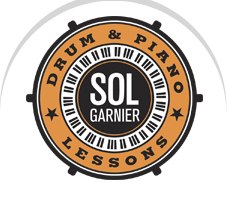
-
The complains.
I talk to other drum and piano teacher. and it is always interesting to hear their point of view about the students and/or the parents they deal with. Of course, the first thing to be said is that those teachers are proud of their students. They enjoy the relationship they build over the weeks, months…
-
Classical music or Rock is the same for musicians.
Let’s establish some foundations in the realm of music instruction, particularly from the perspective of a Chicago music instructor. In classical music, performers are trained to play precisely what is written on the page. While some classical musicians can improvise or compose, they are not the same multitude found in the vibrant world of jazz.…
-
Organizing the day for music.
The title of this blog might be a bit misleading. You may think it means dedicating a whole day to practice, but that’s not what I intended. It’s quite the opposite: it’s about fitting in a few efficient practice sessions with your instrument during a busy week. Let’s consider a typical week filled with work,…
-
A tough decision.
The decisions you make determine your fate when you’re a self-employed musician. You have to take the little decisions like the ones who concern what you wear for a gig, and the medium ones like which kind of car you buy, and the big ones like deciding to become a teacher or a player. All…
-
When music becomes the purpose
I know someone who went to Russia back in the 90s to discover what young and upcoming musicians were playing there. I know someone else who decided to travel to Rio De Janeiro for Carnival to get acquainted with the Samba. I know a third person who was browsing the CD racks of Tower Records…
-
Resolution
Is it too late? For resolution, I mean. Am I out of time? Anybody? No answers! Ok, then, I’ll decide: no too late. Just on time. I was right on. That was easy. So, first of all, here goes: Happy New Year! I hope all your wishes and dreams come true. Second, as per title…